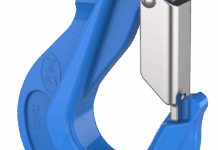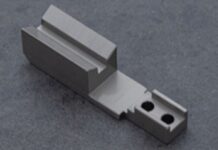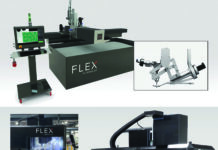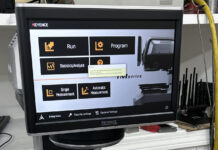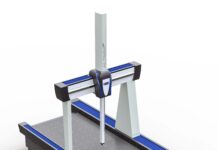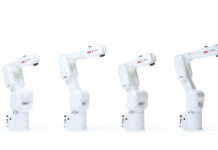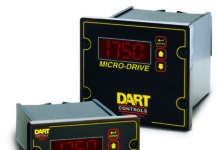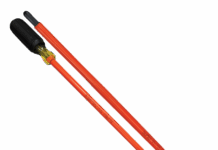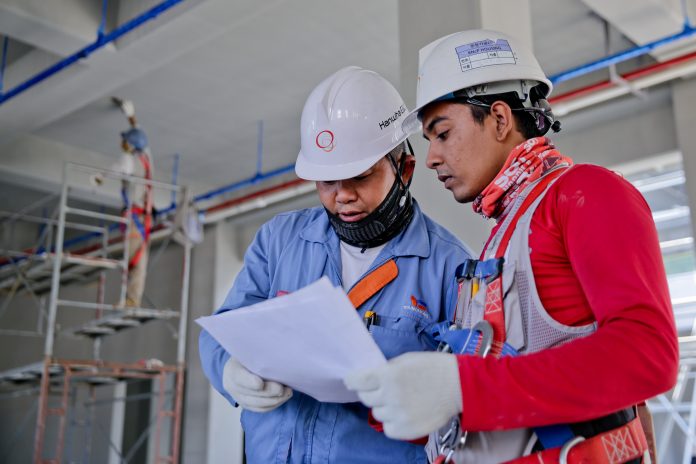Custom metal fabrication is an intricate, difficult and delicate process that requires experience and the utmost precision. To deliver high-quality custom metal fabricated components, job shops need to utilize its highly skilled craftsmen to blend traditional practices with technology. This hands-on approach delivers precise details in presswork, power forming, welding, cutting and shearing.
Customization Yields Benefits to OEM
By nature, custom job shops have an advantage over mass manufacturers because they see a variety of one-of-a-kind specs and drawings. In turn, no job is too complex or unique, which creates additional capabilities from the craftsmen. Custom jobs are also not limited to cookie-cutter designs that need to be produced in large quantities. Instead, low production amounts yield high flexibility and shorter lead times. Due to the ability to work in tight time frames based on the customer’s need, custom job shops can speed up the delivery process.
Relying on Experience
Relying on the experience of the most talented veteran craftsmen to train, prepare and mentor the next generation of metal workers and fabricators is a benefit to not just the custom job shop, but also the customer.
The knowledge of these team members is invaluable. They are necessary to complete projects with precision, skill and accuracy in a timely fashion. They can also help carry on these skills by teaching the incoming workforce on the intersection of art and science that is reading, translating and understanding a customer’s design and blueprints in order to create the best possible roadmap toward the production conclusion. The veteran tradesmen can act as mentors through the entire process from planning to production in order to assure the project is completed correctly and the apprentice employees learn as much as possible from their elder trainers.
As important as it is for team members to receive hands-on learning from experienced tradesmen, cross-training also develops well-rounded employees. Each employee should be aggressively cross-trained in all areas of the custom metal fabrication field in order to differentiate from many fabrication shops and factories where employees are only adept at single-specialty work. This helps to create a broad-skill team where each person can assist with other areas of production and the process can be better suited for the possible predicaments that may arise during tasks, accommodating the individuality required from all custom jobs.
Lastly, a workforce should complete ongoing training and education to improve performance and productivity. This continued learning leads to higher career retention and empowers employees to become better, faster and more successful in their work. It is through an experiential learning program that team members develop their trade. Using an apprenticeship-style approach, the newer craftsmen are paired with more experienced mentors who guide them on the processes and vocational training to close the skill-gap in the industry. This training method also assures the customer their parts will be fabricated under a watchful eye by experienced craftsmen.
Challenging Work, Triumphant Results
The nature of customization work creates a highly complex, intricate process. The necessary skills training remains the same across projects, however. The mentors in the team must teach younger members how to dissect and understand the steps of the project and detail out each facet of the project to complete the process. Understanding the need for a step-by-step process will result in success for each individual task. Over time, tradesmen will learn and understand the complexities of the blueprints, schematic drawings and project requirements in order to deliver those required results. They develop familiarity with the different types of metals and materials and their characteristics. They work to break down the safety requirements with data sheets and learn the aspects of the desired materials used.
One of the most important steps that can impact the entire process is the planning. A pre-job kickoff meeting should include the estimator, project manager and shop lead. In this meeting, it is important to review everything from the purchasing of materials to developing the job sequence build that yields the highest quality outcome in the most efficient way. During this process, it is important to develop a breakdown of the entire project into smaller individual tasks that can be doled out to the team.
Through this intricate planning process, turnkey machines and automation can be programmed to give the highest precision possible, utilizing technology to its highest capacity with the direction of the skilled team.
Maintaining Safe Work Environments
Training and safety standards go hand in hand. New employees should be required to take part in a full day of training to ensure they understand the correct procedures. All employees should complete this program when hired and continue to undergo various types of training throughout their tenure at a company.
While the elder craftsmen transition out of the workplace, it is important for them to share their knowledge and experience to the younger generation. With a mentoring program, the wealth of knowledge is passed on and protected, keeping the standards of production high, and the workforce safe.








